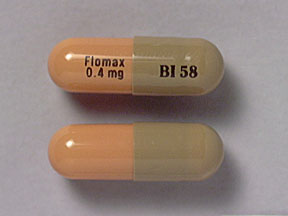Flomax Dosage
Generic name: TAMSULOSIN HYDROCHLORIDE 0.4mg
Dosage form: capsule
Drug class: Alpha blockers
Medically reviewed by Drugs.com. Last updated on Jan 2, 2025.
FLOMAX capsules 0.4 mg once daily is recommended as the dose for the treatment of the signs and symptoms of BPH. It should be administered approximately one-half hour following the same meal each day. FLOMAX capsules should not be crushed, chewed or opened.
For those patients who fail to respond to the 0.4 mg dose after 2 to 4 weeks of dosing, the dose of FLOMAX capsules can be increased to 0.8 mg once daily. FLOMAX capsules 0.4 mg should not be used in combination with strong inhibitors of CYP3A4 (e.g., ketoconazole).
If FLOMAX capsules administration is discontinued or interrupted for several days at either the 0.4 mg or 0.8 mg dose, therapy should be started again with the 0.4 mg once-daily dose.
More about Flomax (tamsulosin)
- Check interactions
- Compare alternatives
- Pricing & coupons
- Reviews (299)
- Drug images
- Side effects
- Patient tips
- During pregnancy
- Support group
- Drug class: alpha blockers
- Breastfeeding
- En español
Patient resources
Professional resources
Related treatment guides
See also:
Further information
Always consult your healthcare provider to ensure the information displayed on this page applies to your personal circumstances.


